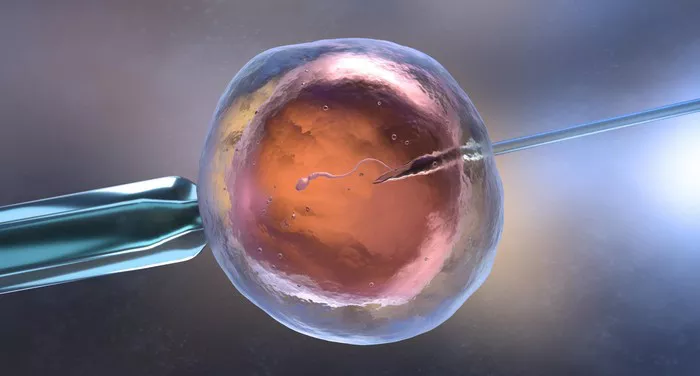Infertility is a significant concern for many couples around the world. Advances in medical technology have provided various solutions to this problem, one of which is In Vitro Fertilization (IVF). Besides helping couples conceive, IVF can also be used to address genetic disorders. This article will explore how IVF can help in removing genetic disorders, the techniques involved, and their effectiveness.
Understanding IVF
In Vitro Fertilization (IVF) is a process where an egg is fertilized by sperm outside the body, in a laboratory dish. The resulting embryo is then transferred to the uterus to establish a pregnancy.
The IVF Process
- Ovarian Stimulation: Fertility drugs are used to stimulate the ovaries to produce multiple eggs.
- Egg Retrieval: Eggs are collected from the ovaries using a needle guided by ultrasound.
- Fertilization: The eggs are mixed with sperm in a lab to allow fertilization.
- Embryo Culture: The fertilized eggs, now embryos, are grown in a lab for a few days.
- Embryo Transfer: One or more embryos are placed in the uterus.
IVF has been a game-changer in reproductive medicine, offering hope to many couples who would otherwise be unable to conceive.
Genetic Disorders and Their Impact
Genetic disorders are diseases caused by abnormalities in an individual’s DNA. They can be inherited from parents or occur spontaneously.
Types of Genetic Disorders
- Single-Gene Disorders: These are caused by mutations in a single gene, such as cystic fibrosis and sickle cell anemia.
- Chromosomal Disorders: These involve changes in the number or structure of chromosomes, like Down syndrome.
- Multifactorial Disorders: These are caused by a combination of genetic and environmental factors, such as heart disease and diabetes.
Genetic disorders can lead to a wide range of health problems, from mild to severe, impacting the quality of life and life expectancy.
See Also: The Cost of In Vitro Fertilization (IVF)
How IVF Can Help Remove Genetic Disorders
IVF can play a crucial role in reducing the risk of passing genetic disorders to offspring through two main techniques: Preimplantation Genetic Testing (PGT) and Gene Editing.
Preimplantation Genetic Testing (PGT)
PGT involves testing embryos for genetic abnormalities before they are transferred to the uterus. There are two types of PGT:
- Preimplantation Genetic Diagnosis (PGD): Used to detect specific genetic disorders.
- Preimplantation Genetic Screening (PGS): Used to check for chromosomal abnormalities.
The PGT Process
- Embryo Biopsy: A few cells are removed from the embryo on day 3 or day 5 of development.
- Genetic Analysis: The DNA from these cells is analyzed for genetic abnormalities.
- Embryo Selection: Only healthy embryos without the detected abnormalities are selected for transfer.
PGT allows couples with known genetic risks to significantly reduce the chances of passing on these disorders to their children.
Gene Editing
Gene editing involves directly modifying the DNA of embryos to correct genetic defects. The most advanced technique for gene editing is CRISPR-Cas9.
The CRISPR-Cas9 Technique
- Targeting the Gene: CRISPR-Cas9 can be programmed to target specific sequences of DNA.
- Editing the DNA: The Cas9 enzyme cuts the DNA at the targeted location, allowing for the insertion, deletion, or correction of genetic material.
Gene editing has the potential to eliminate genetic disorders at their source, offering a permanent solution. However, it is still in the experimental stages and raises ethical and safety concerns.
Effectiveness of IVF in Removing Genetic Disorders
Success Rates of PGT
PGT has been shown to be highly effective in identifying and preventing the transmission of genetic disorders. Success rates depend on various factors, including the specific disorder being tested for, the quality of the embryos, and the expertise of the laboratory.
Case Studies and Research
Several studies have demonstrated the effectiveness of PGT:
- Cystic Fibrosis: PGT has been used successfully to prevent the transmission of cystic fibrosis, a common genetic disorder.
- Thalassemia: Couples at risk of passing on thalassemia, a blood disorder, have benefited from PGT.
- Huntington’s Disease: PGT has been used to select embryos free from the gene mutation that causes Huntington’s disease.
These studies highlight the potential of IVF combined with PGT to reduce the burden of genetic disorders.
Challenges and Limitations
Despite its success, PGT is not without challenges:
- Accuracy: While highly accurate, PGT is not foolproof and can occasionally miss genetic abnormalities.
- Cost: The procedure is expensive and may not be accessible to all couples.
- Ethical Concerns: The idea of selecting embryos based on genetic makeup raises ethical questions about eugenics and designer babies.
Future Prospects
Advancements in genetic testing and gene editing hold promise for even greater effectiveness in the future. Ongoing research aims to improve the accuracy, safety, and accessibility of these technologies.
Ethical Considerations
The use of IVF to remove genetic disorders raises several ethical issues that must be considered.
Consent and Autonomy
Couples must be fully informed about the procedures, risks, and potential outcomes. Informed consent is crucial to respect their autonomy and decision-making rights.
Equity and Accessibility
Ensuring that these advanced technologies are accessible to all, regardless of socioeconomic status, is a significant challenge. Policies must be developed to address disparities in access to IVF and genetic testing.
Long-Term Implications
The long-term effects of genetic modifications are not fully understood. Continuous monitoring and research are essential to ensure the safety and well-being of individuals born through these technologies.
Societal Impact
The potential for “designer babies” raises concerns about societal values and the definition of normalcy. It is essential to have a societal dialogue to address these issues and develop ethical guidelines.
Conclusion
IVF, combined with techniques like PGT and gene editing, offers significant potential to reduce the transmission of genetic disorders. While these technologies are not without challenges and ethical concerns, their benefits in providing healthy offspring for at-risk couples are profound. Ongoing research, ethical deliberation, and equitable policies are essential to maximize the positive impact of these advancements in reproductive medicine.
Related Links:



























